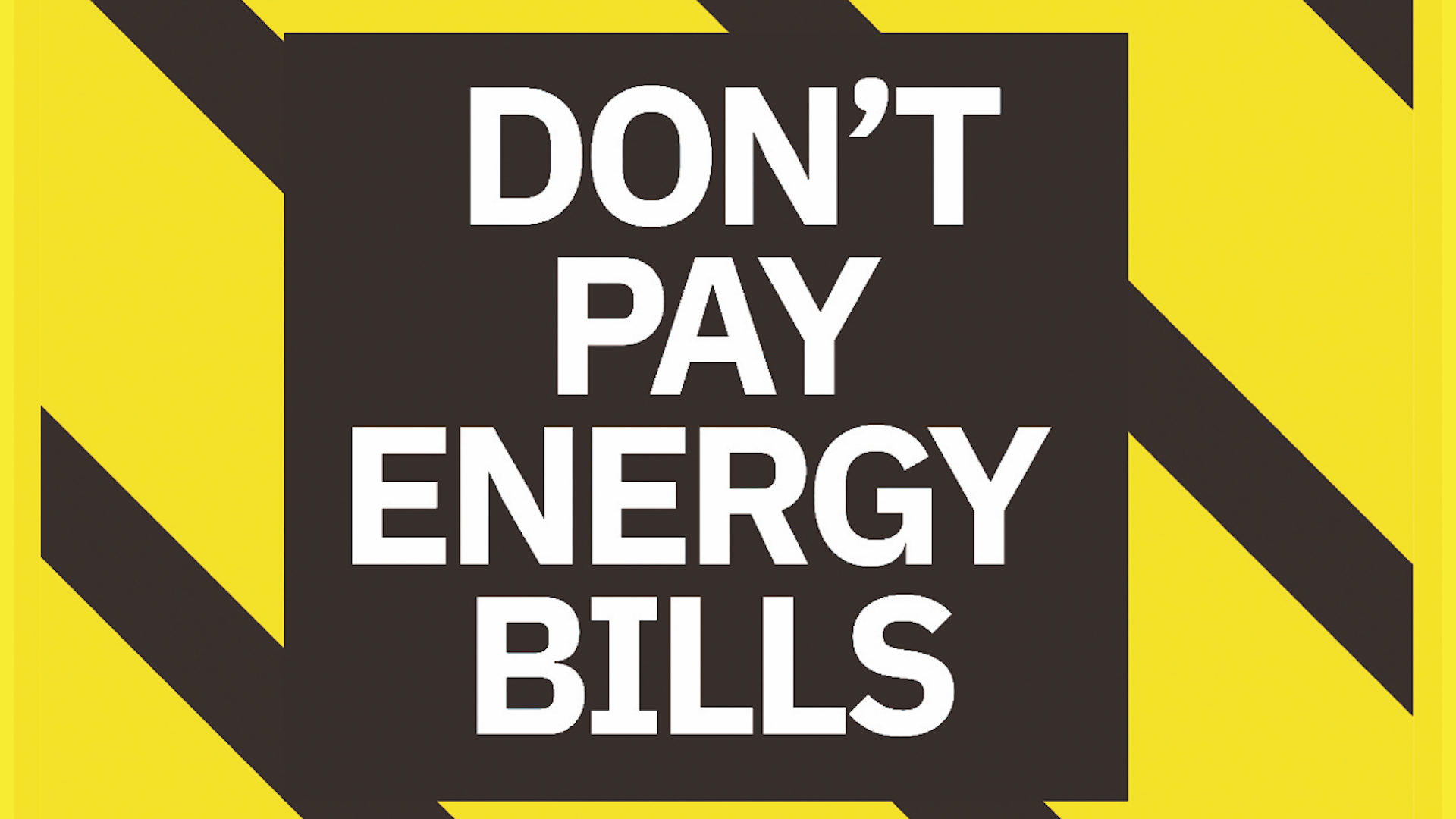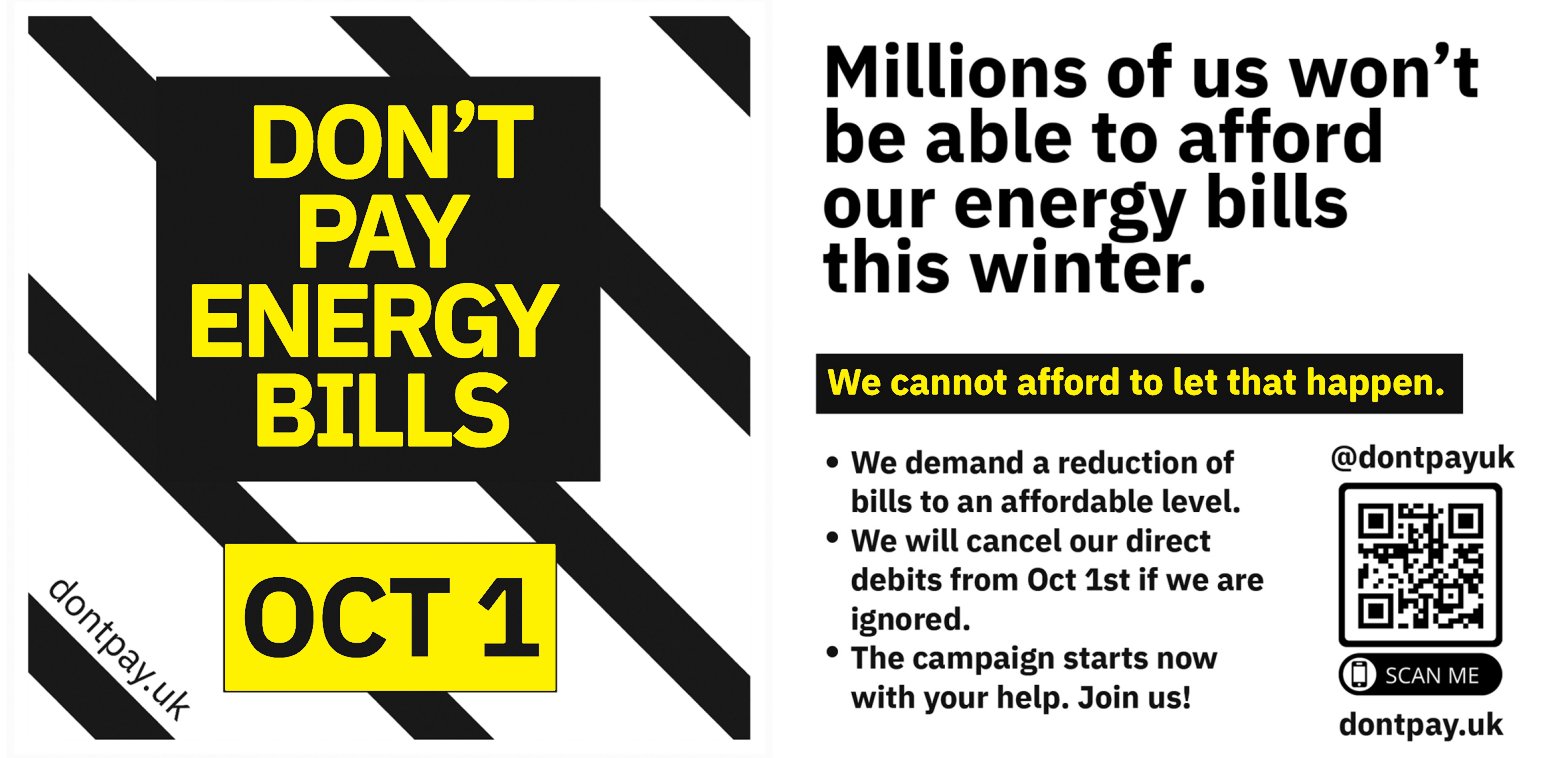Don’t Pay UK has confirmed the planned October 1 energy bills strike will not take place because the target of one million pledges has not been reached.
Around 190,000 people have so far signed up to the mass non-payment campaign, which was launched in June in response to soaring bills. It is not clear if people will be made aware they should not cancel their direct debits on October 1, however, and much of the campaign literature being circulated still mentions that date.
The group says a national day of action will take place instead on Saturday, with events expected to be held in communities across the country. It had always said the strike would take place once one million people had pledged to take part and that remains the plan.
A spokesperson for the group told the Big Issue: “We will not be going ahead this weekend, we will now strike when we reach one million. Instead, we have a national day of action, with protests, rallies, and stalls in many major cities.”
The original target was for everyone who had signed up to cancel their energy bill direct debits on October 1, when the price cap rises. Costs were expected to hit £3,500 a year but Liz Truss, in one of her first acts as prime minister, announced bills would be capped at £2,500 for two years. That’s still double what they were at the start of the year.
- What are the risks of Don’t Pay UK? We asked a leading lawyer
- Campaigners call for a million people to cancel their energy bills if government refuses to act
The most recent statement on the Don’t Pay UK website, posted after Kwasi Kwarteng’s mini-budget on Friday, reads: “We’ve now proven the strength of the Don’t Pay campaign. After 180,000 of us pledged to strike, the government was forced to reduce the catastrophic energy price hike scheduled for 1st October.










